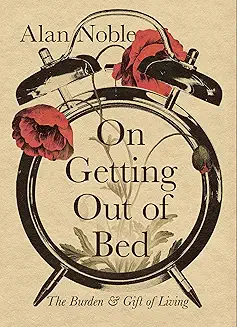The supervisor of my doctoral program, Dr. David Fitch, wrote a book that I plan on reviewing sometime very soon, that details how ideologies can and often do develop into enemy-making machines. It is a thought-provoking, brilliant book. I have been thinking a lot of it in relationship to the label "socialist", and the difference in policies between more conservative, moderate and more liberal persons in the political arena.
First of all, it is probably appropriate to share where I am coming from in the American poltical landscape. I was a registered Republican until 3 years ago. In truth, I am probably more independent, but I want a voice in the primary process so I chose the the Republican party. My ties with conservatism are fairly straight forward. I am pro-life and anti-abortion. Often I am for lower taxes and smaller government. In my time I voted for Republican candidates and Democratic ones. Where I grew up, Republican was synonymous with populist, and democrat with elitist. I changed my party affiliation a few years ago, reluctantly, because I felt the Republican party had drifted too far to the right, being driven by the racist and xenophobic leadership of Donald Trump.
Anywho, that is just so you know I have a point of view.
So, let me restart, I want to talk about the intersection of ideology and politics. Particularly as it relates to the term socialism. Because language meaning is fluid, socialism has come to have multiple meanings. Because of the nature of ideology, socialism has become a master signifier that has been stripped of a lot of its meaning as persons seek to villify others with the term.
Very few in our political world are completely against integrating elements of socialism into our government and society. Most Americans support social security, medicare, and many support medicaid. Most farmers support farm subsidies. Many businesses are beneficiaries of taxation and financial benefits that support corperations and businesses that could be labeled socialist. Other programs such as food stamps, unemployment insurance, subsidized housing, and help for those with disabilities are not as universally supported, but still offer some element of socialism through providind a safety net for the most vulnerable members of our society.
A majority of our citizenry also remembers Communism, and its toxic effect of nations and the economic engines of societies. Communism, as we know it, is an effort to make a governement purely socialist, with the government controlling the entire economy. As we have seen in the twentieth century in the USSR, China, and Cuba, it tends to breed oligarchical totalitarian regimes. Many conflate Facism and Communism in their totalitiarian nature. Communism, at least as a concept, tried be about making all of the people equal owners of societies resources. Facism was more boldly totalitarian, without a need to have a leveling effect of the citizenry.
In the American political process, socialism is a term that has been bandied about for most of the 20th and 21st century. Since the era of McCarthism, it has been used in every attempt to scare people away from any movement toward equal opportunity, justice, or any government program that attempts to help address issues of poverty.
Racial integration was labeled as socialist. The Civil Rights movement and their leaders were shamed with the label as well. As was the union movement was called socialist (ok, in part because they were infiltrated by socialist activists at times). The list goes on and on.
Here is the rub. Labeling every government program as socialist, which is then communist, which is then totalitarian, which is then Nazi, is unproductive to dialogue on both the conservative and liberal sides of social discourse. And it makes it so that we don't understand really dangerous, destructive socialism when it is right in front of us.
Enter the 2020 presidential election. Conservatives has successfully labeled every possible progressive program as socialist. In doing so, they have blinded a large part of the electorate to the danger of pure socialism by rendering the meaning of the term empty, especially for persons under the age of 40. So, when a socialist named Bernie Sanders comes on the scene, and he promises to nationalize health care, post-secondary education, and over-regulate industry to the point to where we are truly moving in a dangerously socialist, and approaching communist direction, the term has lost its meaning.
MORE LATER....
HE WHO LOVES NOT WOMEN, WINE, AND SONG.... REMAINS A FOOL HIS WHOLE LIFE LONG---- MARTIN LUTHER
Subscribe to:
Post Comments (Atom)
Book Review of On Getting Out of Bed by Alan Noble
On Getting Out of Bed By Alan Noble IVP ISBN 978-1-5140-0443-2 Reviewed by Clint Walker Have you ever gotten a good night’s sleep, and stil...

-
On Getting Out of Bed By Alan Noble IVP ISBN 978-1-5140-0443-2 Reviewed by Clint Walker Have you ever gotten a good night’s sleep, and stil...
-
Book Discussion: The Shack Overview Questions If you were to rank the book: THE SHACK on a scale of 1-5, what would you rate it and why woul...


No comments:
Post a Comment